The influx of tourists and tourist dollars could always pose potential threat to a traditional way of living, yet in Lijiang it seems to have worked more on the positive side by triggering the revival of indigenous culture.
The intricate web of canals built in ancient time still serves as a sophisticated water-supply system that carries water to every Naxi courtyard home. Many well preserved and tastefully polished traditional Naxi houses were turned into hotels, cafes and inns. Even folk custom museums are adapted into Naxi homey style.
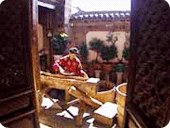
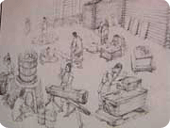
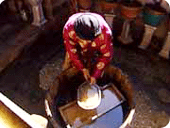
Dongba is the name of Naxi's indigenous religion. Its shaman is also called dongba that presides religious rituals in high occasions and is also often well learned in medicine, literature, arts, and crafts. This dongba is among the few people today who still grasp the Dongba papermaking technique.
Different kinds of paper are named after the types of ceremony for which they were used. Thanks to its excellent durability, many Naxi traditional scriptures, poems and folklore were preserved to the present day.
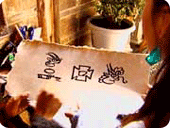
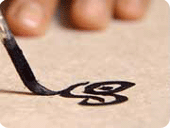

Dongba script is the world's only surviving pictographic language still in use today.
Naxi people are known for their "work as ant and live as butterfly" living attitude. Their traditional lifestyle may have shifted slightly to accommodate the outside influences; yet their peaceful mindset seems to remain mostly undisturbed.
